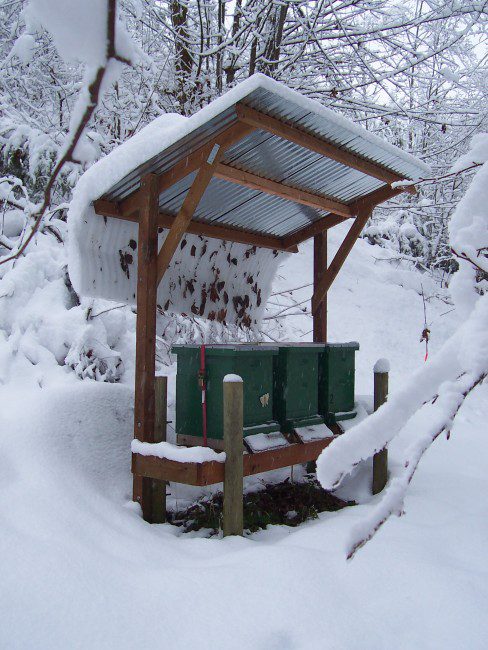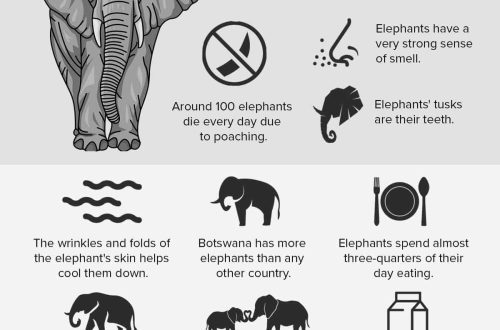
Как пчелите зимуват: как се държат по време на зимуване
How do bees hibernate? — surely this question interested readers at least once. How do these fragile insects cope with the cold, which is felt even for us? Let’s try to figure it out.
Съдържание
Preparing bees for wintering: what is she like
So, How do bees prepare for wintering?
- First of all, the bees drive out the drones. Of course, they are useful in their own way – they fertilize the uterus and help regulate the temperature inside the hive. However, drones also consume decent food supplies. And in winter it is worth its weight in gold! At the same time, the need for drones disappears in winter. So, it is better to really save food. Therefore, the drones are dragged to the bottom of the hive, where without food they become weak, and soon die.
- The hive is also cleaned by bees from dirt and debris. Otherwise, the air, most likely, will not be able to fully circulate in it. A kind of general cleaning takes place before wintering. After all, during the warm season, a huge amount of sand, twigs, blades of grass and other debris gets into the hive from the street. It is impossible to avoid getting them inside, so it remains only to clean up.
- Food stocks are also being prepared. For this, honey, which remains after the summer period, comes in handy. The bees diligently drag them into the upper combs. And the nectar, which has not yet had time to turn into honey, is sealed so that it does not ferment. In a word, these hardworking insects conduct a real audit of their stocks!
- Also, the bees diligently seal the holes in the hive. And they try to close up everything that only they meet. Some entrance remains, but it is made as narrow as possible. Let’s not forget that in nature, wild bees are not protected from gusts of wind in any way – caring beekeepers can equip a home shelter. Meanwhile, ice gusts are the main enemy of both domestic and wild bees. And in order to avoid it, it is necessary to close up all the loopholes with the help of propolis, familiar to all of us. By the way, an interesting digression into history: our ancestors closely monitored the condition of the hives, and if the bees covered it especially carefully, it means that it will be very cold next winter.
Successful wintering: how to beekeeper can provide
If homemade bees, how can they help beekeeper?
- It is better to make a house for bees in advance, even before the first frost. If the bees live in an apiary – that is, a street is chosen as their wintering place – be sure to carefully insulate the houses. And both outside and inside. For this, foam, foil, polystyrene and other waste that remain after construction work are suitable. But to insulate the roof, it is better to choose something else – for example, felt, some kind of fabric. Speaking of fabric: linen and cotton are an excellent choice, but in a synthetic winterizer, insects may well get confused and even die.
- But it is not worth completely covering the hive with additional material, because ventilation is necessary. You can leave a couple of small holes for this purpose – at the same time they will help get rid of the condensate. And so that the wards do not freeze, if possible, it is better to rearrange the house to the south side so that they get more light and heat.
- The hive should be cleaned of both dirt and old combs. The lower sector of the cells is also recommended to be removed. All these actions help to clear a new space for the bees, which will be very useful to them in winter.
- When assembling a nest, it is recommended to focus on the type of bee family. If it is, as they say, “strong”, you need an assembly in the form of an arch – that is, light frames weighing up to 2,5 kg are located in the center, and those that are heavier on the sides. The feed frame in this case should be placed in the center above the bees. A family of average strength will feel better if the stern frame is placed at an angle, and the rest can be placed on a descending side. A weak family will feel good if heavy frames are hung in the center, and weak ones on the sides. Such tips will help the hive get through the winter with minimal losses.
- Speaking of honeycombs: it is desirable that they be dark. It is believed that such cells are the warmest. And in winter, this is what you need! In this case, all holes must be sealed with wax.
- The beekeeper, taking honey in the summer, must understand that a certain supply of this food should be left to the bees themselves for their wintering. As practice shows, during the winter a strong hive can eat even 20 kg! The colder the winter, the more food will be needed. Some beekeepers, however, prefer to treat their pets with various surrogates, but this is a bad idea. It is best to leave them full-fledged honey, no matter how much you want to take it for yourself. Top dressing may be acceptable, but if, for example, there was no normal honey flow due to bad weather. As a top dressing, it is better to use a very thick sugar syrup, pouring it immediately at a time for 5, and up to 10 liters!
- Some beekeepers prefer to transfer their pets to the omshanik – a special room in which bees hibernate. And this is a good option, if certain conditions are met. Namely, temperature from +1 to +3 degrees and humidity from 60% to 80%. If thermoregulation is good, it is not difficult to maintain such parameters. The thermostat should not be used unless it is very cold. In omshaniki, by the way, it is easier to conduct inspections of bees.
- Speaking of inspection: how to conduct it? In relatively warm weather or, as already mentioned, in omshanik. If a calm rumble comes from the hive, then everything is fine with the bees. If you hear them unimportantly, then something could happen – for example, insects moved to empty frames, and it is useful to feed them. And if nothing is heard, then, unfortunately, the insects could die. Increased humidity, insufficient food, death of the uterus, low temperature, various diseases – all this leads to such a result.
- By the way, mold leads to death. Therefore, when an inspection is carried out, it must be removed without fail. And urgently. And then you need to improve ventilation.
- A huge mistake is to conduct an inspection in white light. It is better to choose red, since white has an exciting effect on insects, and they can easily fly out of the hive. For the same reason, you should not make sudden movements, make loud noises.
- Podmore – dead bees – this is the phenomenon that can tell about the success of wintering. If it is small, and it is dry, then the wintering is successful. Podmor should be removed with a special scraper.
How do bees winter: how do they behave during the winter
Как do these insects behave during wintering?
- Asking the question of how wintering bees, some people think they are the same with other insects. In fact bees don’t hibernate like most other insects. Their activity, of course, slows down, but they remain in the state wakefulness.
- If the temperature around drops to 6-8 degrees, one bee can no longer warm up on your own. Как as a rule, it is at such indicators bees gather in the so-called “club”. Club – these are bees gathered in a heap, which touch each other, thus keeping you and your neighbors warm. Remarkably, that in the middle of such a club the temperature rises to 14-18 degrees! That’s why periodically the bees change places: the ones outside the club are squeezing to the center, and the central ones give way to their brethren.
- Remarkable also that the club itself is in movement! On warm days, he move closer to the exit, in cold – farther. And, of course, movements can be dictated by proximity food.
- The most interesting that empty the intestines in winter, bees are rare, and many beekeepers very interested in this question. First, the insects in winter and eat less active as before. Second, the gut they increase, and in many times, and is supplied with a special substance. This substance slows down the processes fermentation, resulting in emptying happens very rarely.
Such industrious insects like bees, just can’t help but prepare for wintering with care. So it is: they approach this issue with the same zeal with which honey is made. And, in turn, the beekeepers also work hard to make them the wards survived the winter with comfort.





